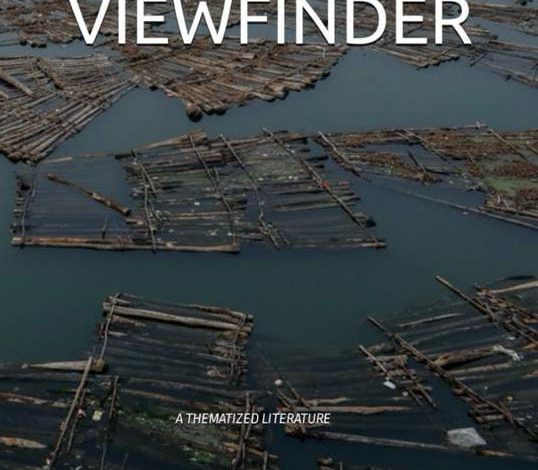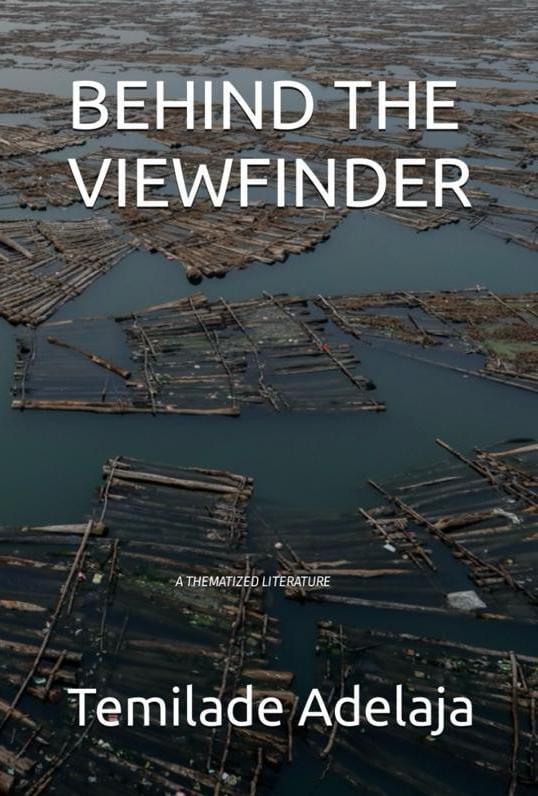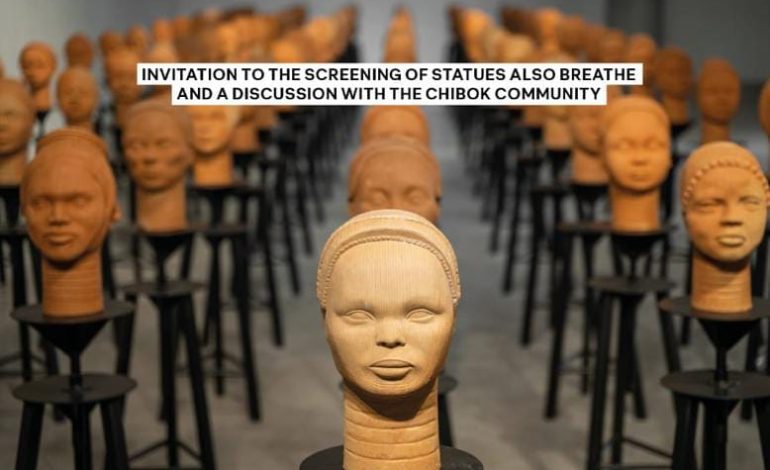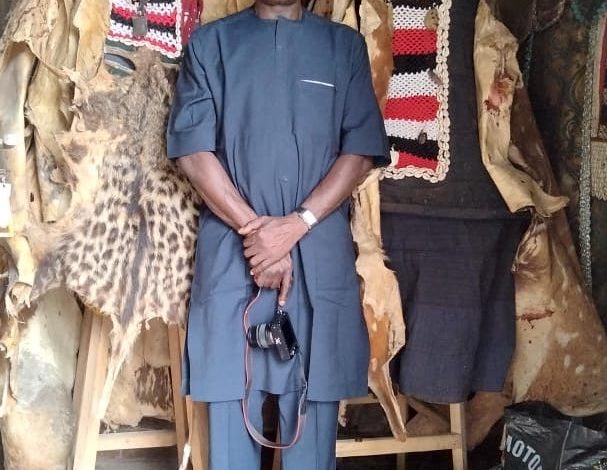‘Behind the Viewfinder’: From cityscape to nature, Adelaja’s lens explores man in his elements

By Anote Ajeluorou
IN what she terms ‘thematised literature’ that combines captivating photographs that range from shots of city scenes, natural landscapes and a sundry human activities, with accompanying exploratory prose and poetry texts, Temilade Adelaja has set in motion a movement in the art of photography that is beyond the ordinary. This extraordinary combination of two distinct artistic categories in this slim volume Behind the Viewfinder (KDP, UK; 2024) shows the mind of an artist who is not content with the regular. She has explored her environment in its minutest details for both its beauty and ugliness if only as a reminder that the two co-exist. But ultimately, her plea is for a progression towards the beautiful and a reduction of that which is ugly for a harmonious, charming world.
And as she argues in her preface, “In the realm of photography, a single image can evoke numerous narratives, ranging from poignant to misunderstood or even exuberant.” This is also true of her shots that essentially evoke ‘poignant’ feeling in the viewer. While her photographs evoke or even provoke such feeling, her accompanying prose and poetry texts elevate the mind of the reader to possibilities the photographs left unexplained. This combination will be a magnet to readers who will want to return to Behind the Viewfinder again and again to distil something fundamental in the man’s relationship with his environment.
Adelaja has a keen eye for the environment that her photographs explore in detail. Her first shot is a street performance. Even in its still format, the photograph has a telling effect on the viewer; a sense of the symmetry of the performers in motion is still palpable. That is how visually powerful the shot is, as it retains and sustains the fluidity of the dancers in time and space. It is also in this shot titled ‘Dancing Through the Lens’ that Adelaja enunciates the philosophy behind her photography art in the accompanying prose text, when she says, “Despite my own lack of dancing prowess, I found solace in photography, where a few clicks could immortalize memories and evoke emotions. Adjusting my camera settings, I uncovered the subtle nuances of each moment, capturing the essence of life in shades of grey.
“In the rhythm of the lens, I found inspiration and meaning. Through dance, photography, or any form of expression, we find refuge and resilience, embracing the beauty of the human spirit in its most authentic form.”

The next photograph is a basket of onions laid out in small portions for sale, which she titles ‘Poem: Cry Me a River’ a piece named after the music track by Juliet London. This poem evokes the culinary usefulness of onions, but also its stings in the eye, as the cook/chef must experience before he or she can extract that glorious tastes it lends to dishes. It’s a moving tribute to the onion vegetable, and Adelaja says in the poem, ‘Similar to her soulful melody is a vegetable,/ One that evokes tears from both man and woman,/ As its layers of flavor are unveiled./ Like unwrapping a gift, cutting through its core,/ I shed tears of joy with every savory bite,/ Whether sautéed or caramelized, its essence delights,/ In every dish, its taste divine, a culinary marvel through time.”
The next shot is ‘Political Procession’ in which Adelaja delivers a power visual message on people-power and how it upends all forms of politically-motivated tyranny and wrestles freedom for the oppressed. Adelaja chooses to dwell on a famous procession that reverberated throughout the world: #EndSARS! And her shot is a silhouette of a man who has emblazoned on his back in white the inscription: ‘Buhari, Feel Our Pain; No To Massacre’. In her prose text, Adelaja expresses joy at the milestone that #EndSARS was, noting, “Despite the challenges and sacrifices, the government was compelled to disband the SARS unit demonstrating that resistance against oppression can lead to justice. The protests persisted for days, but eventually, the desired outcome was achieved. Since then, Nigerian youths have felt a newfound sense of freedom from oppression, underscoring the power of unity in achieving our aspirations.”
Of course, this shot contrasts sharply with ‘The Liar of the People’, where she declaims political promises that amount to nothing, as the people, who attend rallies with expectations of the good life delivered to them, are perennially deceived by lying politicians who make empty promises for their selfish end.
One of Adelaja’s shots that will evoke laughter and amazement from viewers is ‘Siesta in Makoko’. Only Adelaja’s powerful words can explain what she felt while taking what could arguably be an award-winning photograph: “During one of my visits to the Makoko – one of Africa’s most unique inner-city slums, in the humid summer heat of Lagos, a serene sight caught my eye—a young man resting peacefully amidst the tranquil beauty. The gentle lapping of the water against the bamboo bed, the warm embrace of the sun accentuating his radiant melanin, and the harmonious symphony of nature enveloping him in its embrace— it was a moment of pure bliss and tranquility, a respite from the daily hustle and bustle.” ‘Siblings in Canoe’ and ‘Street Ball Symphony’ comes close to sharing the same joyful delight in the pleasures of ordinary things.
For those who may not know, Makoko is a city on stilt; it’s built on the Lagos Lagoon and juts towards Third Mainland Bridge, but the city is entirely built on water on raised sticks and plank works. This is where this young man decides to have his siesta. Quite an amazing spectacle.

Temilade Adelaja
From ‘My House Is a Boat’ to ‘Silent Sentinels’ and ‘Casting the Net’, Adelaja’s focus is on nature and man’s interference in it. In ‘My House Is a Boat’, flood water has covered a fine house ostensibly built on a wrong plain or it’s perhaps a scene from the floods that ravaged parts of the country in recent years. Nature takes its toll on man’s efforts and renders them nil. ‘Rising Waters’ also echoes this natural disaster. ‘Silent Sentinels’ is a shot of the millions of logs at the other end of Makoko that are ferried on water from thousands of miles away to provide economic wellbeing for those in that line of business. But it also points to man’s activities that negatively impact the environment; those logs means a depletion of the rainforest and aggravation of the ozone layer, as the natural buffer is being removed for man’s quest for wealth. The next photograph also points to man’s activities and interference in nature; it’s of a man casting his net for fish. This is a little more benign than logging, as fishes spawn easily and quickly, but those who cut trees do not replace them, thus exposing the environment to degradation.
In ‘Casting Net’, Adelaja writes a moving poetic piece, “A fisherman casts his net,/ Seeking life’s essence./ Third Mainland Bridge stands tall,/ Witness to his tranquil act,/ Nature’s harmony./ Water ripples dance,/ Reflecting the city’s soul,/ Resilience shines through./ Dreams flow like a river,/ In this vibrant cityscape,/ Strength and hope prevail.” She transforms the seemingly ordinary activity of fishing via casting of net into man’s epic struggle to make the most of his ingenuity and the sense of beauty the activity invokes in those watching from far off. Viewed from Third Mainland Bridge, the sheer artistry of the man casting next, the rippling water’s silver surface reflecting the sun is awe-inspiring. Both photograph and poetry act like delightful, harmonious symphony. ‘Lofty Aspiration’ comes close to this piece on man’s toil to make a better life for himself and his family.
Other engaging titles in Adelaja’s Behind the Viewfinder are ‘Black Magic’, ‘Lagos Labyrinth’, ‘Melodies of Memories’, ‘Tranquil Twilight,’ ‘Chibok Girls Beneath the Bridge’, ‘The Fish Seller’ and ‘Colours of Lagos Island’. ‘Enugu Mother’ ends this thrilling volume of Adelaja’s captivating photographs and ‘thematised literature’, where a woman is walking on a lonely path with the red earth as a defining backdrop. Adelajaa’s is a delightful volume that will keep readers/viewers thoroughly engaged, as it helps them relive certain magic moments. These visually pleasing photographs and exploratory poems and prose texts are Adelaja’s gift to humanity. Adelaja has displayed immense photographic artistry. Entirely magnificent.



